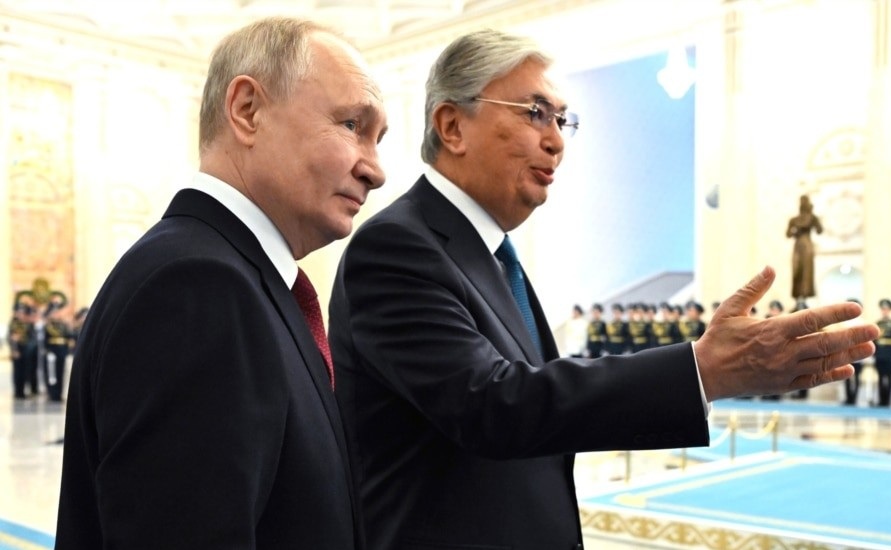Russia’s uncertain ‘turn to the East’
The breakdown in relations with Europe was portrayed by Russian propaganda as a bright new horizon for the Eurasian space. But sanctions have enabled Kazakhstan, Kyrgyzstan and Uzbekistan to grow in their role as intermediaries in trade with third countries. And today, many migrants are looking more to the West than to Moscow.
Moscow (AsiaNews) – The Centre for European Policy Analysis (CEPA) has examined current trends in Russia’s economic relations with Central Asia—a region traditionally very closely integrated with Moscow, but now one in which Russia is gradually losing influence. The rupture in relations with Europe had been framed by Russian propaganda as the dawn of a “Turn to the East” across the Eurasian space, starting with Central Asia itself.
At the 5th Central Asian Conference of the Russian Valdai Club, Russian speakers described a “watershed between the collective West and the Global South”, while Central Asian participants were markedly more measured and pragmatic. Rustam Khajdarzoda, Director of the Institute for the Study of Asian and European Issues at the Tajik Academy of Sciences, noted that given his country’s demographic growth, more jobs are urgently needed—hence the reliance primarily on Russian investment.
Guzel Majtdinova, professor of foreign policy at the Russian-Tajik Slavonic University, stressed the importance of “developing new communication routes within Central Eurasia”—not just those that pass inevitably through Russia. Aza Migranyan, Director of the Centre for Post-Soviet Research at the Russian Academy of Sciences’ Institute of Economics, acknowledged that Central Asian countries are aligning themselves on critical issues for Russia, seeking discounts on energy exports in response to the restrictions imposed by international sanctions.
These same sanctions have allowed Kazakhstan, Kyrgyzstan and Uzbekistan to act as intermediaries in foreign trade between Russian agents and representatives of third countries, expanding their financial and logistical infrastructure. Nonetheless, Central Asian speakers emphasised the importance of a “multi-vector policy”, avoiding conflict both with East and West. China’s economic role in the region is growing, though ties with Russia remain significant.
In Kazakhstan and Kyrgyzstan, dependence on Russian imports of sugar and grain remains, and the region’s transport infrastructure is still heavily tied to Russia. Both Astana and Bishkek are members of the Eurasian Economic Union (EAEU), which, while not particularly effective, still provides a buffer against Chinese commercial pressure and market expansion in Central Asia. Moreover, despite increasing restrictions, the majority of Central Asian migrant workers still head to Russia.
Moscow also claims to be the only power capable of guaranteeing regional security, although in practice China’s influence in this area is expanding. The Kremlin maintains very close ties with the top military and law enforcement officials in Central Asia, following the lines of the Eurasian CSTO alliance, while Beijing is actively developing its own security cooperation—such as in Tajikistan, where China's security presence has reached unprecedented levels.
Recent incidents highlight Russia’s determination to maintain control in these countries—for example, the late-April arrest in Kyrgyzstan of four individuals who were recruiting for the Russian army via institutions linked to the Russkiy Dom cultural centre and other Russian-affiliated organisations. At the same time, crackdowns on Central Asian migrants in Russia are becoming increasingly overt—such as the recent arrest of dozens of Kyrgyz nationals in a Moscow sauna without justification, which triggered strong tensions with Bishkek’s authorities.
For many reasons, Central Asian workers are increasingly seeking opportunities in Europe, aiming to free themselves from dependence on Russia. This highlights a “turn to the West” in Central Asia that is arguably more pronounced than Russia’s supposed turn to the East.
11/08/2017 20:05







.png)










